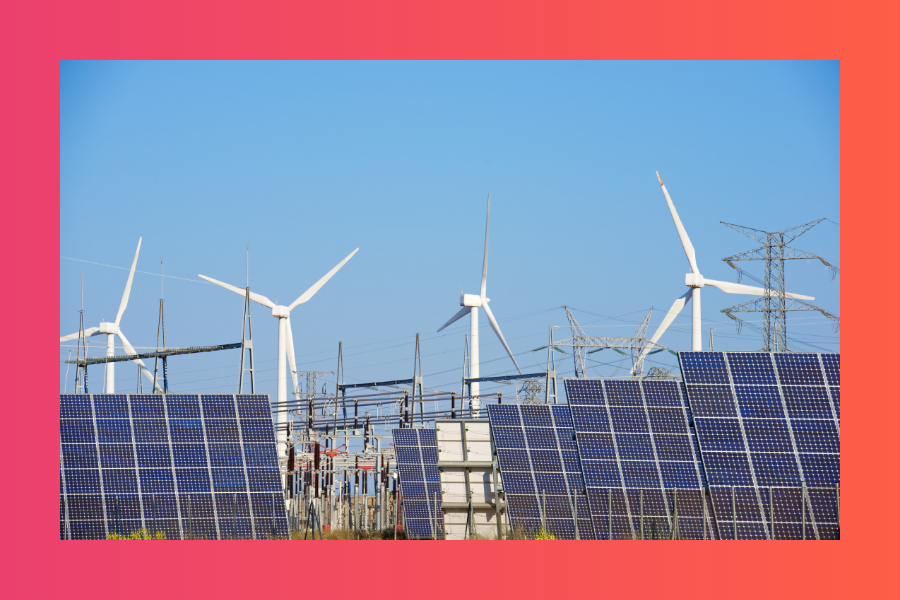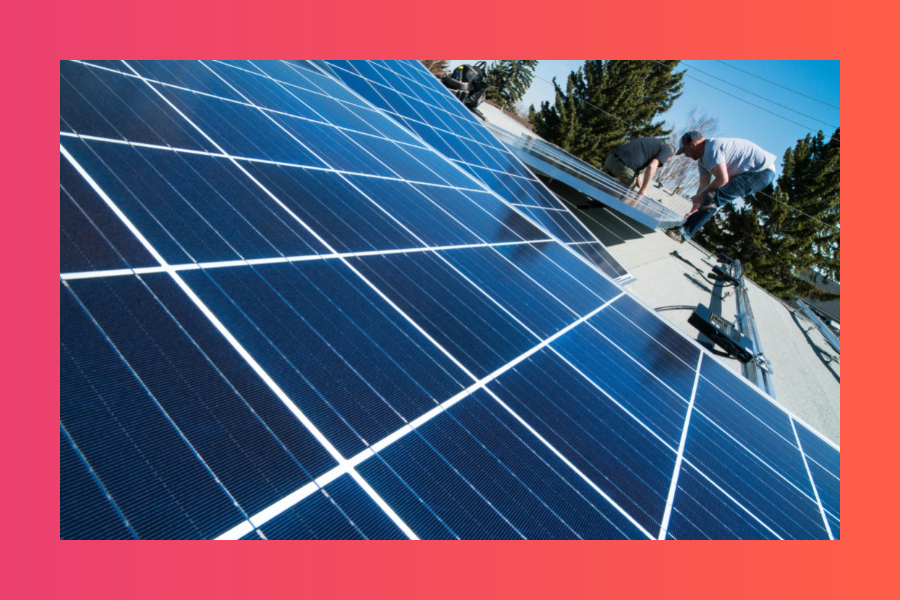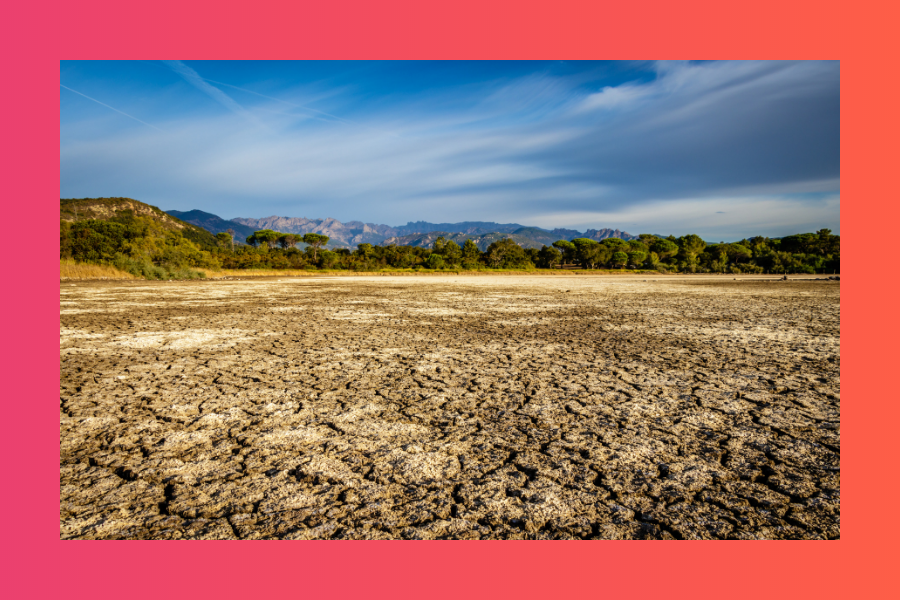The Power Behind the Uaroo Renewable Energy Hub
Recently news arose of a plan by Fortescue - commonly known as being one of Australia’s biggest mining companies and producers of iron ore - to bring...
5 min read
![]() Solar Trust Centre Team
:
Apr 18, 2022 8:00:00 AM
Solar Trust Centre Team
:
Apr 18, 2022 8:00:00 AM

At the outset it may seem like the link between renewables, climate change, and insurance isn’t very strong. It could almost sound like it’s part of a classic quip - ‘3 spokespersons for renewables, climate change, and insurance walk into a bar…’ - but the reality is the ways in which these areas are set to impact each other in the future will be immense. It’s very much akin to a sleeping giant which will become very visible indeed once it awakens.
Meanwhile, the elements of each field here have already started to have an impact upon one another. In order to have a clear-cut picture of the present and future of each area here, it’s essential to understand how they relate to the others. This is not only because the path ahead for these fields will become increasingly interwoven, but also because it is the actions taken in the here and now which will have a substantial impact in the mid to long term of this aforementioned relationship. So just as there’s no time to waste, let’s unpack now the story of renewables, climate change, and insurance in the 2020s.
At the outset there’s a difficult fact to detail here, and then another - and together they unfortunately affirm things are set to be even more difficult in the years ahead. They concern the cost of living. It won’t be news that the pandemic has driven up the cost of living for many across Australia, and most recently in 2022 events like the conflict in Ukraine - while that should not be attributed as the lone cause of rising costs at the gas station given fuel has been going up for a long while prior - has caused costs to rise further. Going forward, when it comes to insurance, the cost of living is only set to get worse.
This is why in a time where many Australians are already feeling hip pocket pain, it’s essential that more voices are involved in the national conversation surrounding climate change and the insurance industry. The fact is there’s the expectation climate change will not only drive up the costs of insurance for lots of Australians in future, but also make it outright unaffordable for many.
Of course it’s no revelation that everyone has a personal responsibility when it comes to their decision to insure or not insure goods like their home, their contents, and vehicle(s), but the implications of more and more Australians being unable to afford insurance goes beyond individual fallout. It could mean following a natural disaster or similar incident that damages many homes across a community, that the community subsequently suffers too if people are uninsured, and unable to afford to pursue a rebuild of their homes.
A scenario like this would see local businesses like a bakery, cafe, and others that are owned by locals also close up shop. In essence, the institutions which make up the heart of a town would be lost, and not be recovered. In turn, if those aforementioned businesses are not making a profit, that means they’re not paying (much) tax, which diminishes the shared pool of resources we all pay into for the provision of services like roads and hospitals.
Sure, some may be tempted to think ‘oh, but if something like that happens a government would step in and bail people out’, but the horrifying scenes seen recently in the Australian floods of 2022 - perhaps most visibly in NSW where numerous notable locations across Sydney have found themselves under water - illustrate betting on current governments to respond adequately at this time could be a risky bet indeed.
As illustrated above, climate change is set to drive up the costs of insurance in years ahead.
This is another area where those small but loud few in Australia who wish to persist in this fantastical narrative that there’s really no great rush to boost renewables and take action on climate change - with them more or less regarding it as fine to ‘kick the can down the road’ with these tasks to the next generation - find themselves running right up against the evidence of the urgency.
It’s been estimated growing risks surrounding the climate will drive up annual property insurance costs by around AU$250 billion globally by 2040. Obviously at the household level, there are some homes here in Australia - e.g. those in bushfire-prone areas, and in areas dealing with coastal erosion - which are more vulnerable to growing risks. Nonetheless, countless homes across Australia are vulnerable to weather incidents like storms and floods, which means even where households are situated far from bushland or a coast, vulnerability to extreme climate change-linked weather incidents can certainly remain.
It’s no secret insurers can sometimes get a bad rep. This said, while horror stories do exist, the reality is they’ll often be highly-publicised, whereas the majority of times where customers have no issues whatsoever with their insurers, are of course not going to be front page news.
As a result, a fair assessment of the insurance industry won’t overlook issues, and where it can improve, yet also must take into account where insurers are not only doing well in terms of their social contribution, but also possess great potential to do even better. The dynamics of how insurers approach dealing with fossil fuel operations is a clear example of this. Put simply, there is the capacity for insurers to be positive agents of change in this area.
It’s of course necessary to acknowledge any such move by various insurance businesses to shift away from fossil fuel companies is not occurring simply motivated by altruistic intentions alone. Fossil fuel businesses very much continue to operate on borrowed time, and - for all the endeavours being pursued by some stakeholders to try and prop the industry up for a while yet - ultimately it’ll only get harder as we shift further into the 2020s for these operations to survive. Nonetheless, while they remain around, and remain profitable, many other businesses will be receptive to making some money in association with them.
This said, there is no doubt that moves such as Lloyd’s of London’s in 2021 to stop new insurance for oil sands, coal, and Arctic energy projects by January 2022 - and to cease insuring in the fossil fuel sector altogether by 2030 - is a welcome development for green enthusiasts. In turn, just as this decision puts pressure on other insurers to follow Lloyd’s in shifting out of fossil fuels, it further illustrates to the public at large that the move towards a greater use of renewables and sustainable practices is indeed unstoppable.
Just as the relationship between climate change and insurance has now been discussed - including fossil fuels - it’s now a good time to also have a word regarding the relationship between renewables and insurance.
At the outset it can be said there’s no doubt that renewable operations can prove more enticing for insurers than those in the fossil fuel sector. After all, while the fossil fuel industry is already in decline, renewables are only set to grow further - and grow rapidly. Nonetheless, the challenge for renewable operations as it exists today surrounds an understandable but ultimately unfortunate aspect of their existence; that there’s a short history of their use, and - when compared to fossil fuels - a smaller global industry at present.
Ultimately, this problem will self-correct in time, as more renewable operations come online, and as they are in turn backed by more insurers. Nevertheless, it’s essential to remember that when it comes to formulating a collective response to the climate crisis, time is not on our side. As a result, just as this growth being seen in renewable projects and insurers which support them is welcome, more needs to be done, and faster. Put simply, it’s not just about dollars and cents, but taking action now to maintain our safe existence on this planet in the future.
The topics we’ve discussed here are very big and complex in terms of their implications for our world, and this is no surprise. After all, any discussion of the global shift to renewables, to combating climate change, and to how the insurance industry operates across the world can’t be super simple! Yet this said, it’s important that a distinction is made between issues that are impossible to address, and those where there’s indeed much scope for more action to be taken.
When it comes to these issues, the great news is that households all across Australia can make a contribution to driving action in this area. Acquiring a rooftop solar system is a great way to go about this. So too enquiring with businesses like an electricity retailer or insurer regarding what they are doing surrounding climate change, before doing business with them. Then, there’s of course the opportunity to reach out and engage with elected officials.
These are indeed complex issues - and key stakeholders such as governments and insurance companies are most certainly those with the greatest responsibility when it comes to pursuing resolutions to them - but easy yet effective steps can indeed be taken by all of us going forward to drive positive change.

Recently news arose of a plan by Fortescue - commonly known as being one of Australia’s biggest mining companies and producers of iron ore - to bring...
The Conversation has reported that responding to climate change, builders, planners and decision-makers have begun adopting strategies to promote the...

With a national election due shortly the 2022-2023 budget was one of heightened significance, with the Morrison government laying out its intentions...